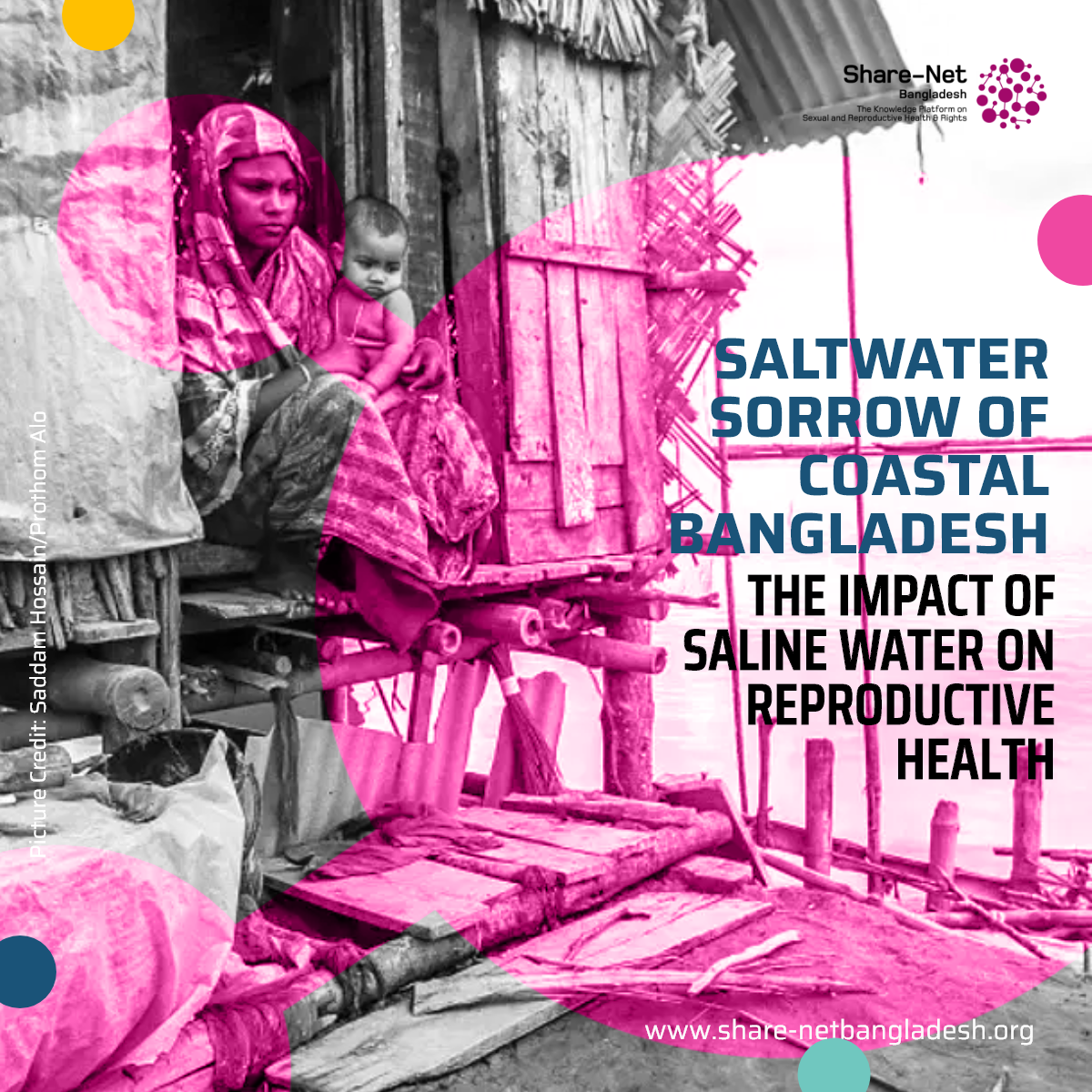Saltwater Sorrow of Coastal Bangladesh: The Impact of Saline Water on Reproductive Health
Under the relentless sun in Khulna’s coastal village, Rahima Begum struggles to collect a pot of freshwater. For her family, it’s not just about thirst—it’s about survival. Regular consumption of saline water has taken a toll on her health, causing her blood pressure to spike during pregnancy, a condition doctors say could harm both her and her baby.
This is not just Rahima’s story but the reality for over one million coastal residents in Khulna who still lack access to safe drinking water. Since 1973, areas affected by saline water in Bangladesh have increased by 27%, pushing saline levels into one million hectares of land. The impact is not limited to agriculture but extends deeply into public health, especially for women and children.
Experts at a recent workshop organized by Participatory Research and Action Network (PRAN) warned of escalating health risks. Rising sea levels—up by 3.2 millimeters annually—bring saline water further inland, contaminating freshwater reserves critical for drinking, agriculture, and hygiene. The crisis is exacerbating sexual and reproductive health (SRH) challenges in coastal regions.
“Saline water consumption significantly affects women’s reproductive health,” said Gauranga Nandi, chairman of the Center for Environment and Participatory Research. He explained how high salt intake increases the risk of high blood pressure and preeclampsia during pregnancy, leading to complications such as stunted growth in newborns.
In addition, poor menstrual hygiene management (MHM) due to insufficient water for sanitation increases the risk of infections, further compounding SRH issues for adolescent girls and women. This freshwater shortage also has implications for infertility, as exposure to high salinity levels can disrupt hormonal balances and reproductive health.
While Bangladesh’s National Water Policy (1999) and National Water Act (2013) emphasize water conservation, participants at the workshop argued that existing laws fail to address the unique challenges of coastal areas. “The coastal region cannot be governed by a one-size-fits-all policy,” said Mominul Islam from the Bangladesh Human Rights Implementation Association.
Proposed solutions include building rainwater harvesting ponds, distributing household water tanks, and developing a distinct law for water management in coastal areas. “Without a targeted policy, the freshwater crisis will only worsen, endangering lives and livelihoods,” said Mahfuzur Rahman Mukul of BELA.
For Rahima and millions like her, these measures could mean a future where clean water is not a luxury but a basic human right, as declared by the United Nations in 2010. Addressing the water crisis is not just about survival—it’s about safeguarding the health and rights of Bangladesh’s coastal communities.
Source: Dhaka Tribune
Picture Credit: Prothom Alo


